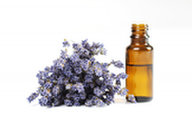“That’s just everything I’ve heard about it”
Do I even need to go into why what you’ve heard about it actually doesn’t mean a fucking thing
“That’s just everything I’ve heard about it”
Do I even need to go into why what you’ve heard about it actually doesn’t mean a fucking thing
You said I was "pulling numbers out of my ass" for how many people were using it, I showed you why I said what I did.
As for how effective it is, again, that's not me who's saying that, that's every study, and most of the people who use it.
Okay, that proves that a lot of people are using essential oils. Unlike CBD though, there are no studies that speak to its medical qualities. What's your point?
About 100 different essential oils are used for medical aromatherapy in Austria and other European countries, Steflitsch told Live Science.
One example of oil that shows some evidence of effectiveness is tea tree oil, which may be an effective treatment for acne, according to the NIH. In one clinical trial, researchers compared gel containing tea tree oil to a benzoyl peroxide product, and found that the benzoyl peroxide worked slightly better but that the tea tree oil had fewer side effects, according to the NIH.
A few preliminary studies have suggested that peppermint oil may help with irritable bowel syndrome. Although the oil is touted for working as a decongestant and reliving headaches and muscle pain, "there is no clear-cut evidence to support the use of peppermint oil for other health conditions," the NIH says on its website. Capsules of peppermint oil may cause heartburn.

Lavender oil is claimed to have a slew of a health benefits, with aromatherapy practitioners using it for anxiety, restlessness, insomnia, depression, headache, upset stomach and hair loss. Some small studies on using lavender for anxiety have yielded mixed results, and some studies suggest the oil may work in combination with other oils to fight a hair-loss condition called alopecia areata, according to the NIH. However, "there is little scientific evidence of lavender's effectiveness for most health uses," the NIH says.
Steflitsch said that aromatherapy is an offshoot of herbal medicine, and European patients and physicians have traditionally been more open to using plant-based therapies as part of their medical treatment compared with the United States, which has a different legal and regulatory climate.
Steflitsch said there is some high-quality evidence that essential oils are effective in treating viral, bacterial, fungal and parasitic infections, and in providing relief from sleep difficulties and pain. The oils may also improve moods, such as anxiety, depression, and reduce stress.
“That’s every study”
bro the site says theres studies and everybody says theyre good and so many people are using them
once clinical studies come out theyre gonna be effective for sure bro
Those things you just linked about essential oils are not the same as the studies I linked on CBD.
That's an opinion piece article that doesn't list any sources.
what did you link on cbd that seemed unambiguously favorable other than the epilepsy study again?
The study that said only four percent of people said it "did not help them in any way", it's up there.
That’s a fucking survey dude not a study
"A cross sectional study of CBD users" by The US National Library of Medicine
you mean this study LMAO
Materials and Methods: A self-selected convenience sample (n = 2409) was recruited via an online survey designed to characterize whom, how, and why individuals are currently using CBD. The anonymous questionnaire was accessed from October 25, 2017 to January 25, 2018. Participants were recruited through social media.
Notice they have made no claims about the effectiveness of CBD because the study is not about the effectiveness of CBD it’s about people using it
Yes that study, the one in which only four percent of those involved found the drug "not helpful". Can you show me ANYTHING equivalent to that for essential oils? If not, the comparison is pointless.
we got two thousand four hundred people who like to click stuff about cbd
Results: Almost 62% of CBD users reported using CBD to treat a medical condition. The top three medical conditions were pain, anxiety, and depression. Almost 36% of respondents reported that CBD treats their medical condition(s) “very well by itself,” while only 4.3% reported “not very well.” One out of every three users reported a nonserious adverse effect.
most of the 62% of them trying to treat something were for pain anxiety or depression, 3 conditions probably most susceptible to placebo and the effects of positive v negative outlook
a third of them reported adverse effects
in a "self selected convenience sample" "recruited through social media"